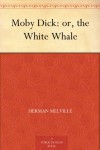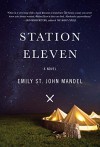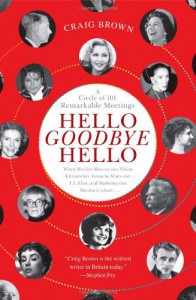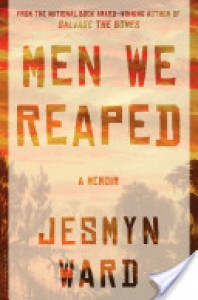Currently reading
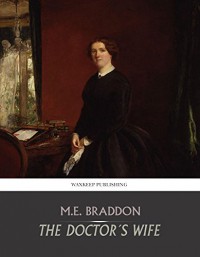
So I recently discovered M.E. Braddon and read what I heard was her most famous work, Lady Audley's Secret. Which was a enjoyable read, definitely a little sensational (as it should be, for a novel about a missing person), and written in a style that feels more modern than many of Braddon's contemporaries. So I picked up The Doctor's Wife for more of the same.
But The Doctor's Wife, in my opinion, is a much more thoughtful and interesting story. It is also chock full of funny, wry references to the art and literature of her era. With shades of Madame Bovary, the main character Isabel is an avid reader who has soaked up a great deal of Dickens as well as less moral authors. A dear friend of hers is a "sensation novelist" (a term that had been applied to Braddon in her time as well) who is prone to doing things like lying prone in fireplaces to see if you could fit a corpse in it. There is a Byronic hero, glittering duchesses, and plenty of gorgeous countryside. It can be a slow-moving tale at times, but because of one of the things I appreciated most about it: Braddon explores all the motives and contradictions and complexities of characters like her Byronic hero and her restless country wife, whose romance may be clicheed but who come into it and cope with it earnestly and true to their respective natures. I only wish their stories hadn't ended so abruptly--I would have liked to have seen more of what the Doctor's Wife did with her change in fortunes.
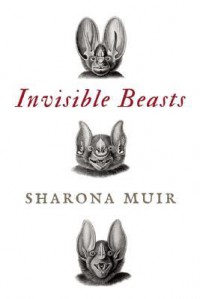
I started this book on an airplane, which wasn't a good fit, because it's not the kind of book you can just immerse yourself in, or at least I couldn't. I finished it during jury duty, which was perfect, because it filled in the ticking minutes between panel selection and court prep and voir dire with fantastic creatures and gentle natural history. These are brief vignettes of encounters with animals that have taken a sharp turn on the evolutionary path. The stories are only loosely connected and arranged, so you have to power through on your own curiousity, but this is rewarded--especially in the last half of the book--with some lovely images.
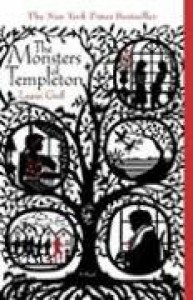
Half of this book tells the story of Wilhelmina Upton, scion of a prominent upstate New York family which includes her hometown's founder and his son, a prominent novelist. The book opens when Willie returns to Templeton feeling disgraced, having fled her PhD research in the aftermath of a doomed affair. I could relate to some of her misfortunes, which--in addition to the escalating wackness of her circumstances and the incongruous touches of a house ghost and a town monster--kept me interested enough to finish this book. Besides, the other characters put an occasional check on Willie's more insufferable tendencies (such as her repeated moping that the whole world is going downhill).
But in order to get to the end, I had to speed through the other half of the book, composed of chapters from a dozen different character perspectives (and a couple in plural voice), all very badly executed. Like being subjected to a town history tour given by a third-rate impressionist. Seriously, there are cameos in the voices of a moustache-twirling French cad and a simpering spinster and a few "me no talk good" early American people of color and these are all completely terrible.
Three stars for Willie's story, barely two for the interspersed "historical" voices. You might like this book more if you're native to upstate New York or partial to James Fenimoore Cooper, whose real and imagined stories are the book's source material.
 1
1
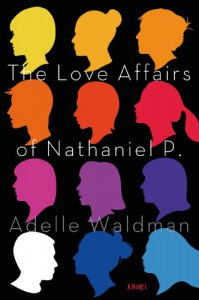
Before I read this book, I gathered that the main character would be a sharp satire of a certain kind of intellectual, privilege-blinded guy. He is that, but I wasn't expecting to see so much of myself in him, or to sympathize. But I think everyone in this book is carefully drawn so that the reader can see what makes him or her tick--even if Nathaniel P can't. (And he actually can, much of the time; the greater part of his poor treatment of other characters is executed in spite of, not in ignorance of, their feelings about it.) Brooklyn and its literati are keenly observed, and though there is a certain enviable glamour in their blase parties, writing achievements, and trendy restaurants, it's also clear how much they all coast on a certain willful ignorance about labor, success, and what matters. Nathaniel P may be a terrible boyfriend, but his shortcomings are of a piece with those of his community.

I'm not much into the memoir genre, least of all food memoirs, but this book hooked me in the first chapter about the author's semiferal childhood in a crumbling Pennsylvania mill with her stage designer father and French ballerina mother. As it went on, I appreciated the author's ruminations about feminism, being a mother and also a leading figure in a male-dominated profession, about the arcane world of advanced degrees in writing--but I kept reading for the glimmers of magic as the author forced a restaurant, a marriage, and a book into being through sheer force of will.

I'm wavering between 3.5 and 4 stars. For most of this book, the charismatic, enigmatic characters and their mysteries wrapped me up and pulled me in. I was not ready for the book to stop when it did. I wanted to know more about the sisters' strange relatonship with mirrors, wondered if Frank's dire warnings about Boy or Boy's dire warnings about Snow would play out. I wanted more of the folkstorytelling that is sprinkled throughout.
Very few of this novel's mysteries are solved. The last one that does is flat and abrupt, so perhaps that's for the best. But the lure of Oyeyemi's novels tends to be in the way that real life, folk stories, and the impossible are all equally present for all characters, and characters' wishes are answered in unexpected and regrettable ways--I wanted to stay in that world a little longer, and see more reaping of what was sown.
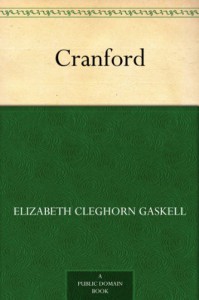
A charming, comfortable series of stories that unfold in the quiet town of Cranford, mostly in the homes of spinsters who practice great economies to maintain genteel appearances. The narrator pokes very gentle fun at her Cranford friends and their airs and social rules, but it becomes clear that the women of the town (it's mostly women; they get quite flustered when there are noisy, messy men about) have utmost care and affection for one another.
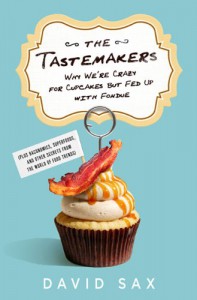
A delicious read and a fun romp for anyone who has followed food fads of the last few years with interest or cynicism. It's a very journalistic take: not much in the way of analysis, but lots of interviews, behind-the-scenes glimpses, and brief histories that make it a pleasurable read.
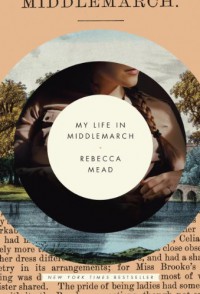
I admit that I felt very dubious about this book. What could be the point of a book about loving Middlemarch, I wondered? Many contemporary authors who love something go on to ruin it by publishing novels placed in the same world with the same characters, or putting the same characters in a slightly different world, or place the beloved author herself as a character in a story that mirrors those characters. Those books tend to be terrible.
But My Life in Middlemarch is wonderful. Rebecca Mead is a careful, thoughtful curator: she draws from letters, diaries, and numerous other materials to reconstruct George Eliot and her contempories in a way that feels fleshed out and full, not caricatured. She allows that it is not possible to know everything about these lives long past and doesn't try to; nor does she try to equate the characters with the real players in Eliot's life. Instead, the lives provide their own story, and the ways that the real story and the fictional narratives reflect on one another speak for themselves.
Mead's own biography, when it appears in segues and brief details, serves as another layer of depth, not a superficial structure. Much of her story is steeped in nostalgia: as she travels to the residences where Eliot lived or cities where she visited, Mead remembers previous trips to those same places, and the distance between her adult life and her earlier life mirrors the relationship between Eliot the author and the characters she draws in Middlemarch. I found myself sympathetic and relating to those stories, and felt that the contemporary reflections enhanced rather than distracted from her research of Eliot's life and work.

I picked up this paperback because I needed to use up a gift card and it was among the more promising novels on the New in Paperback table. And I read almost the entire thing in one day. I started on a plane and continued reading on a ferry, unwilling to interrupt the story with crossword puzzles or airline magazines until I realized that I'd have nothing left for the return trip if I didn't stop.
Misfit child narrators who don't fit in are a dime a dozen, but Brunt makes hers a deeply sympathetic girl who does eventually come to learn that everyone feels like a misfit, even parents. It is, too, a nuanced and forgiving portrait of family politics, showing how love can get mixed up with anger and resentment, and how the best and brightest parts of ourselves are often the imprints left by people we love.
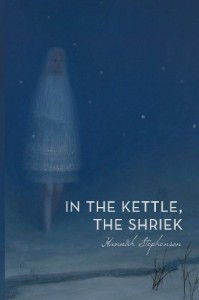
I don't recommend reading straight through, as I did while seated on plane: Stephenson's signature moves--frequent use of second person, lots of questions without question marks--become repetitive and a little precious. But taken singly, the poems are very satisfying to read, often starting with something common (pasta salad, a wedding, an ability to parallel park) and expanding through her rhetorical queries into something larger, more meaningful, more majestic. That's incredibly appealing to someone like me, who likewise wants to see significance in everyday acts of care or decision.
My favorite poems are the two that led me to this volume in the first place--"Fraction," "We Will Judge You Based on Your Wedding"--plus a few more that really get at that largeness-in-the-small feeling, like "Five Second Rule" and "You Can Do This."

I'm surprised to see I hadn't written a post, though I finished this book several weeks ago. But on second thought, it is a lengthy, densely populated, and intricately constructed book. It wanted digestion.
My prose preferences tend toward prettiness and elegance, and this book is neither, except in the apparatus that holds it together. No, I have no idea what the moons and stars have to do with the plot, but I did appreciate the way the sections and chapters started broad and long and messy, and got steadily shorter and more to the point as the events that brought about the murder mystery became more clear.
Not completely clear. I still can't tell you what happened.
All the same, I love a well-wrought historical novel, and this one is rife with detail about a place and time that was previously only known to me through The Piano film.
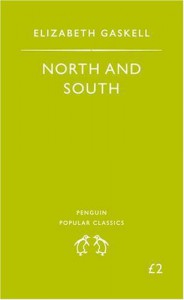
This book is no Middlemarch, but Elizabeth Gaskell is a similarly astute observer of human behavior, particularly the struggle to do what is good and right in a time of social, economic, and political upheaval. Few of the characters remain static: they change their minds, form unlikely friendships and rivalries, obsess over mistakes even as they unthinkingly make new ones that cause ripples even when they do not know it.
Besides--and I'm sure it didn't hurt having the image of Richard Armitage in my mind, but-- John Thornton blows all the other nineteenth century heartthrobs out of the water. You can keep abusve Bronte moor men and your hapless Austen heroes!



